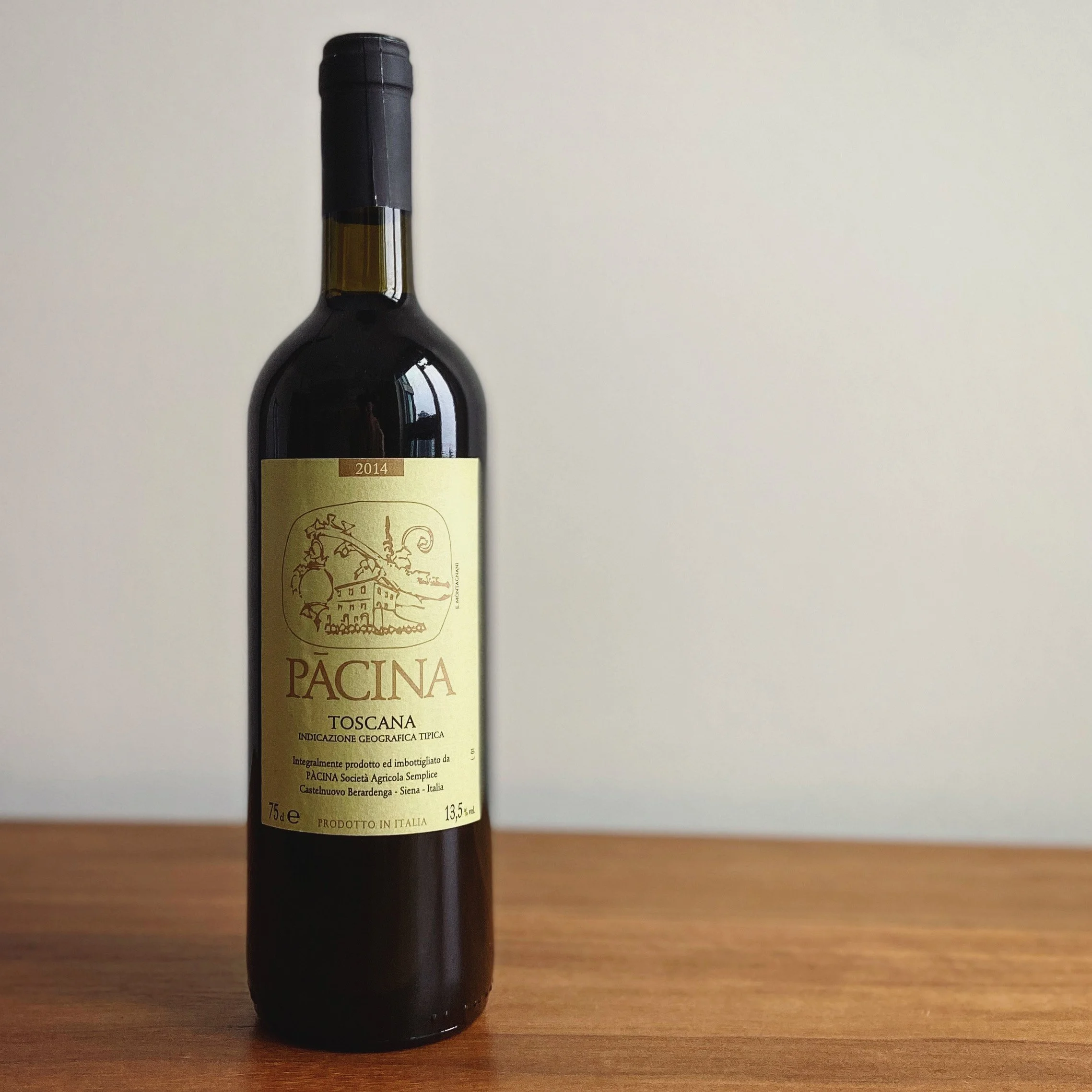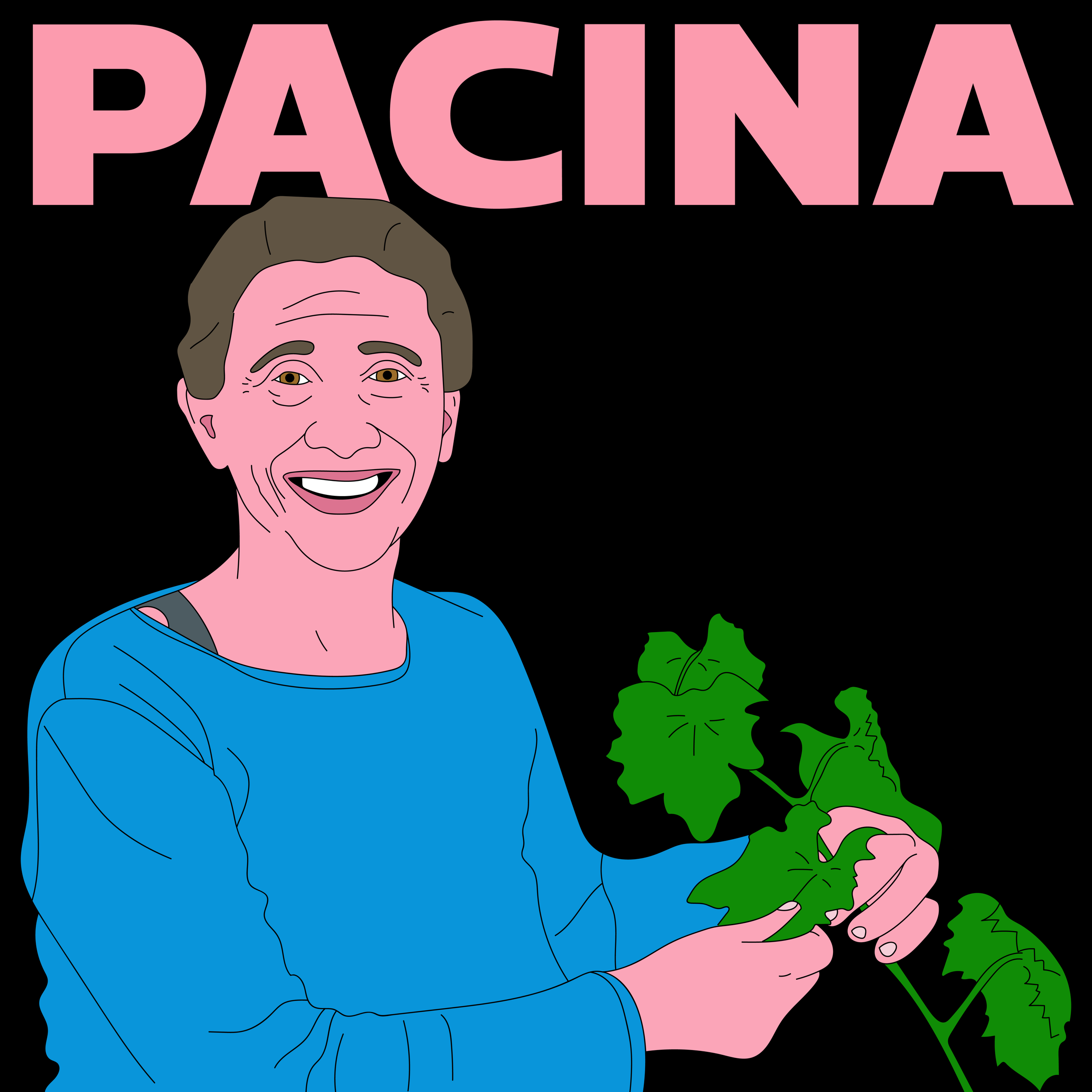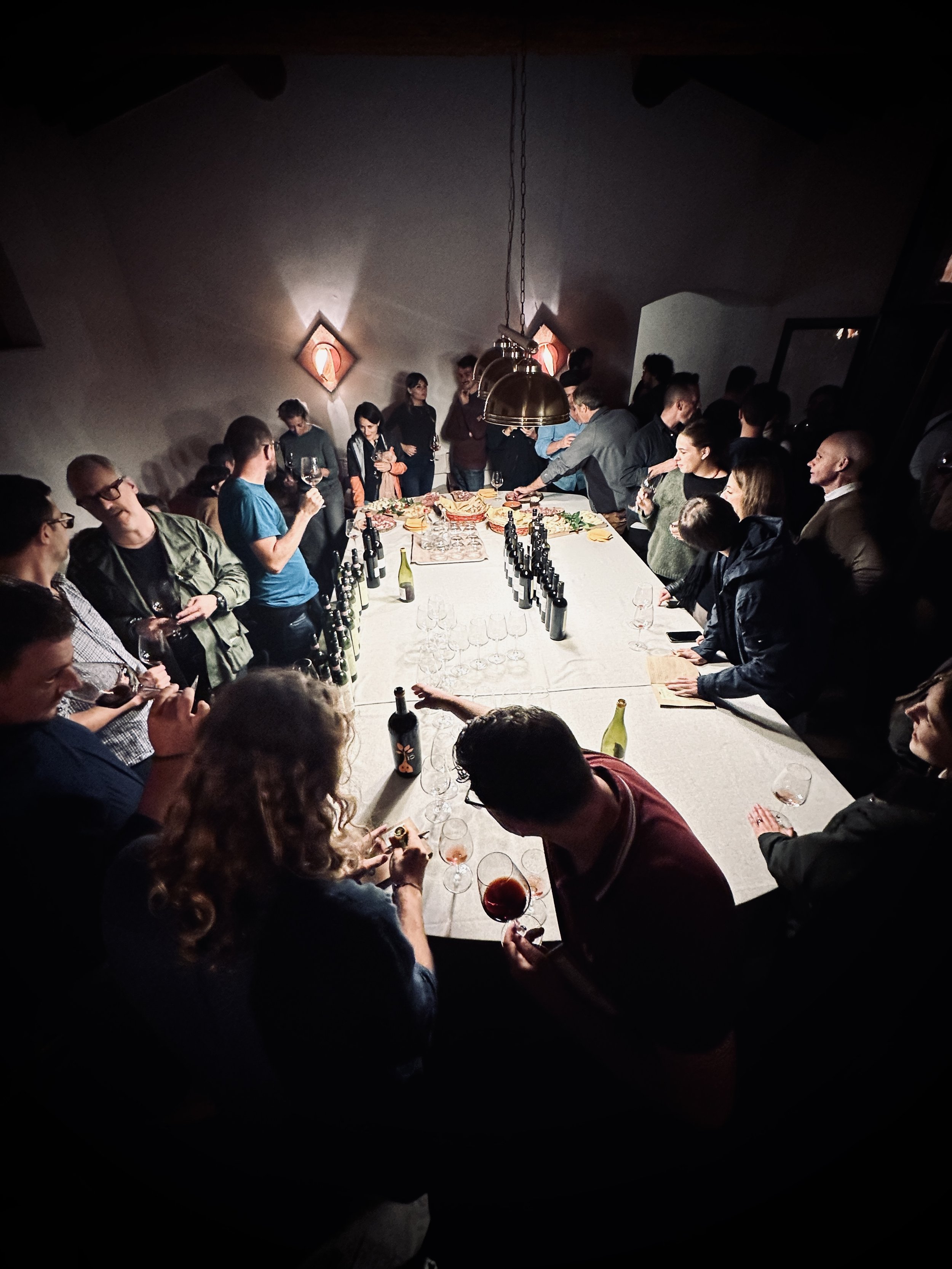PACINA
-
Pacina almost seemed like a myth. Legend of a sprawling estate in Tuscany’s Chianti Colli Senesi dedicated to regenerative farming and historic winemaking methods came to us via our friends in Montreal (Elena), who claimed these wines were timeless and defied all categorization. We brought our curiosity and skepticism to La Dive, the Loire Valley’s legendary natural wine fair, to taste the wines and meet the family behind them.
Maria and Roberto, the next generation of Pacina, greeted us at their booth in the limestone cave. They are infinitely charming, consistently beaming from ear to ear, eager to share their story. The wines have presence, resonance, and mass. They’re toothsome, powerful, confident, and self-assured.
-
The 65ha estate consists of 11ha of vines, 8ha of ancient olive groves, and 15ha of mixed agriculture (spelt, lentils, linseed, chickpeas), while the remainder is left as forest and wildlands. These undisturbed corners of the property help increase biodiversity (including white truffles) while careful crop rotation and over twenty years of organic farming make their commercial endeavours as sustainable as possible. Maria and Roberto have recently put more work into the family’s vegetable garden, providing vibrant produce for their family and guests and introducing animals to close the loop.
Giovanna and Stefano, Maria’s parents and the current custodians of Pacina, have a unique tension between modernism and celebrating the past. They left the Chianti Classico system, opting for the less exalted Toscana IGT designation for more freedom and from disillusionment with the archaic and hierarchical scheme. With parents who were founding members of Legambiente, the Italian environmentalist group, it’s no wonder they forgo any chemicals in the vineyard and allow wild cover crops to grow as they please (or until they judiciously plow to not entirely compromise their yields). Young vines are planted to their own selection massale from vines planted up to seventy years ago.
-
Their hillside is mainly comprised of Tufo di Siena, a sedimentary soil that began life five million years ago at the bottom of the sea. It is sandy and lime-rich, but you’ll also find clay and small stones called ciottoli which promote drainage and heat retention. Their little alcove in the southern section of Chianti is mostly protected by hills to the north, but gentle winds protect them from stagnant air.
They favour long maceration times in the cellar, up to six years for their flagship eponymous cuvée. This polymerizes the tannins making for mouthcoating and powerful wines. Spontaneous fermentation occurs in concrete and tank, while élevage is typically carried out in large neutral oak botti where extended microoxygenation helps with their stability. The wines are universally bottled without fining or filtration, and SO2 is used sparingly and often avoided altogether.
MORE FROM ITALY: CANTINA MARILINA | VIGNETI TARDIS
2014 PACINA
Their flagship wine is made from Sangiovese with a minor component of Canaiolo and Ciliegiolo (5%) grown on their estate in Chianti Colli Senesi. The up to forty-year-old vines are planted on Tufo di Siena, the region’s famous porous limestone. The grapes are destemmed and fermented on skins for two to six months in ancient concrete tanks before being pressed off. The wine then spends two years in a combination of 2500L botti, tonneau, and barrique. The wine is bottled with a maximum of 10ppm of SO2 before spending at least two years in bottle before release. Vintages are seldom released consecutively; instead, they wait for the wine to reach optimal maturity.
2015 PACINA
Their flagship wine is made from Sangiovese with a minor component of Canaiolo and Ciliegiolo (5%) grown on their estate in Chianti Colli Senesi. The up to forty-year-old vines are planted on Tufo di Siena, the region’s famous porous limestone. The grapes are destemmed and fermented on skins for two to six months in ancient concrete tanks before being pressed off. The wine then spends two years in a combination of 2500L botti, tonneau, and barrique. The wine is bottled with a maximum of 10ppm of SO2 before spending at least two years in bottle before release. Vintages are seldom released consecutively; instead, they wait for the wine to reach optimal maturity.
2016 PACINA
Their flagship wine is made from Sangiovese with a minor component of Canaiolo and Ciliegiolo (5%) grown on their estate in Chianti Colli Senesi. The up to forty-year-old vines are planted on Tufo di Siena, the region’s famous porous limestone. The grapes are destemmed and fermented on skins for two to six months in ancient concrete tanks before being pressed off. The wine then spends two years in a combination of 2500L botti, tonneau, and barrique. The wine is bottled with a maximum of 10ppm of SO2 before spending at least two years in bottle before release. Vintages are seldom released consecutively; instead, they wait for the wine to reach optimal maturity. 14% ABV
2020 DONESCO
The Sangiovese for this project comes from the vines that are too young to produce their top wine (10+ years old). The grapes are destemmed and fermented on skins in concrete tank. After an extended maceration, the wine is pressed into cement and stainless steel for a two-year élevage. 350- 700 cases are produced annually, depending on the vintage.
2019 VILLA PACINA
In certain exceptional vintages, Giovanna and Stefano’s grapes yield a wine that is enormous, but gentle enough to release younger. This requires harvesting late, a risky decision, but one they’ve deemed worthy. Sangiovese ferments on skins in concrete for an extended period of time before being pressed off back into concrete for a two year élevage. Because the tannins are softer, it does not require any time in barrel. After bottling unfined, unfiltered, and without SO2, the wine spends at least six months resting before release. 330 cases were produced. 15% ABV
2021 LA CERRETINA
Pacina’s limited white grape plantings are roughly equal parts Trebbiano Toscano and Malvasia del Chianti. Trebbiano Toscano (Ugni Blanc) has been grown in this region for at least six hundred years. It is late budding, resistance to powdery mildew and botrytis, naturally high acid, and abundant yields have made it extremely popular under a dozen synonyms across Europe. Unlike its blending partner, Malvasia del Chianti is susceptible to everything under the sun, making it a challenge to cultivate, especially organically. Its fuller body and higher alcohol levels are the perfect foil for Trebbiano. The grapes ferment on skins for ten days in concrete before being pressed off into 1000L botti for a yearlong élevage. The wine is bottled without SO2. 300-400 cases are produced annually. 13% ABV
2020 ROSATO
This wine is made by pressing whole clusters of Sangiovese over the skins of Trebbiano Toscano and Malvasia del Chianti. After a short maceration in concrete the wine is pressed off into barrel for a minimum ten month élevage. Like their other wines, the rosé is held back until an ideal drinking window, although, it can age much longer. It is bottled unfined, unfiltered, and without SO2. Just over a hundred cases were produced. 14.5% ABV







































